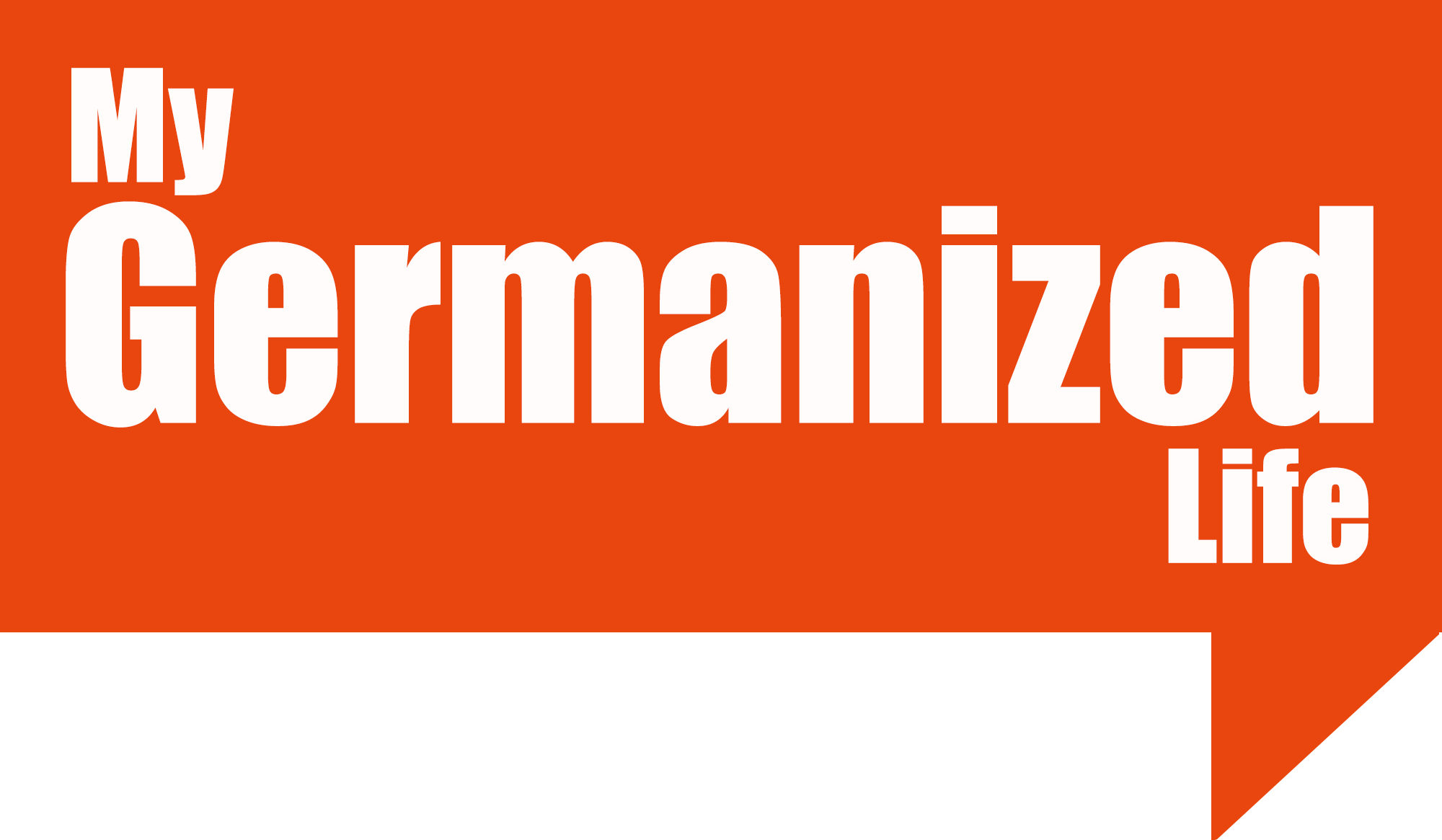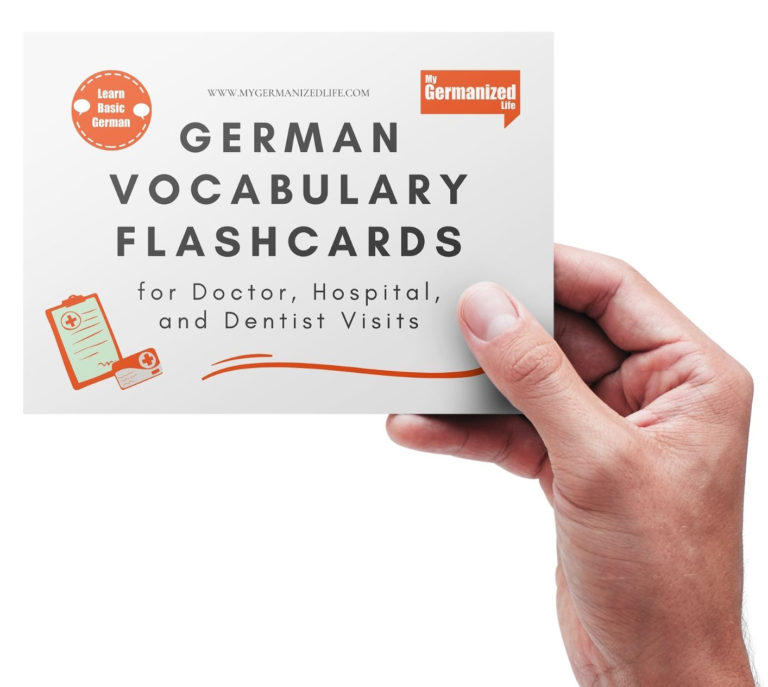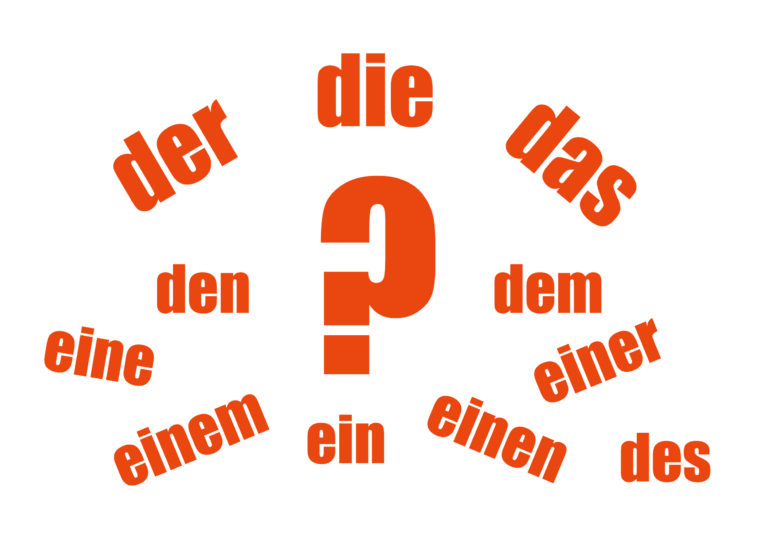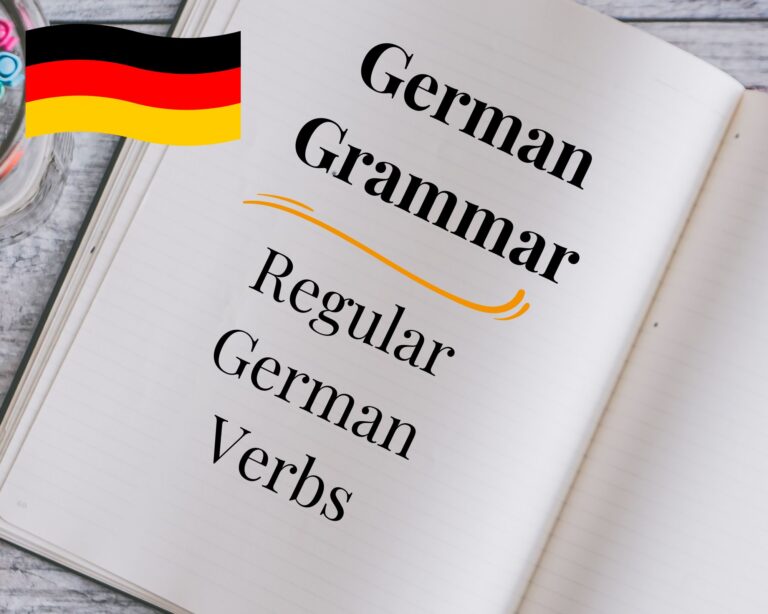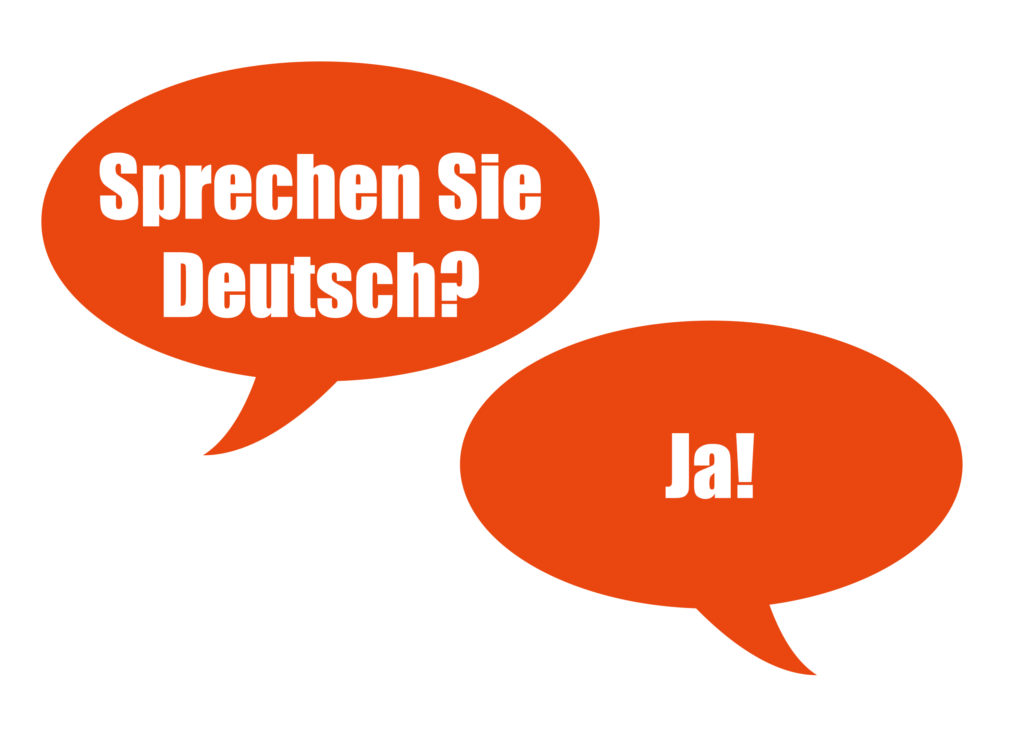
Speak German: Basic Pronunciation Guide
The fear of speaking a new language and making mistakes is something most of us are very familiar with. But, how can you overcome this barrier and learn to speak German?
You’re probably worried that you won’t be able to pronounce German sounds correctly, but it’s not as hard as you think.
German and English pronunciation have a lot in common, except that you rarely have to deal with silent letters or other ambiguous sounds.
Once you learn the German alphabet and phonetic sounds of certain letter combinations, you’ll discover that German words are actually simple to pronounce and follow logical patterns.
Table of Contents
The German Alphabet
The German alphabet has the same letters as the English alphabet and a few extra characteristics.
- The Eszett “ß” – This letter is spoken like a double “s.”
- Umlauts – German has three additional vowels, ä, ö, and ü with Umlauts, or two dots above the letters. These letters are pronounced differently than a, o, and u.
You can hear examples of how to pronounce each letter in the German alphabet in the table below. Keep in mind that the vowels have long and short sounds when pronounced in words. Note that the names of the alphabet letters aren’t necessarily the same as the sound they make.
A
B
C
D
E
F
G
H
I
J
K
L
M
N
O
P
Q
R
S
T
U
V
W
X
Y
Z
In German, the letter “e” sounds more like the English “a,” and the German letter “i” sounds more like the English letter “e.”
Some German sounds can be particularly challenging to pronounce, like the rolling “R.” But, even if you can’t get the pronunciation just right, German speakers can still understand you.
Learning to speak German like a native can take a lifetime of practice, so don’t let imperfections stop you from trying. Try your best until you become more familiar with the language, and you’ll find that your German words start sounding better as you progress.
Speak German: Vowels Without Umlauts
German vowels deserve special attention because they differ the most from their English counterparts. Most of the vowels have both long and short pronunciations. Below are examples of each vowel and the sounds it makes.
A
The long “a” sounds like “ah,” for a soft open sound as in “father.”
Example: Vater (father)
A short “a” sounds similar but less drawn out, like “apparent.”
Example: ab (off)
E
The long “e” sounds like “eh” for a soft sound as in “ember.” Remember always to pronounce the “e,” even if it comes at the end of a word.
Example: besser (better)
A short “e” sounds more abrupt as in “air.”
Example: er (he)
I
The long “i” sounds like an “ee” in English, as in “teen.”
Example: singen (sing)
Short “i,” as in “fin” occurs more frequently.
Example: finden (find)
O
The long “o” in German sounds like the “o” in “closed.”
Example: oben (above)
A short “o” is softer, as in “mother.”
Example: offen (open)
U
The long “u” sounds like the “oo” in “boots.”
Example: Universität (university)
A short “u” sounds like “u” in “put.”
Example: unten (under)
Speak German: Vowels With Umlauts
You can think of the three German vowels with umlauts, ä, ö, and ü as abbreviations for a two-letter combination ae, oe, or ue. These letters have short pronunciations. Let’s look at a few examples.
Ä
The letter “ā” sounds like “e” in “end” or “a” as in “may.”
- ändern (to change)
- schämen (to shame)
- das Mädchen (the girl)
Ö
This letter is similar to the “o” in “world.”
- die Söhne (the sons)
- schön (beautiful)
- öffnen (to open)
Ü
The letter “ü” kind of sounds like you’re saying “eww” before you say “uber.”
- der Lügner (the liar)
- früher (earlier)
- die Gemüse (the vegetables)
Speak German: Vowel Combinations
Next, there are a few essential German vowel combinations that I want to share with you. These combos appear frequently, so you’ll need them to start speaking German.
AU “ow” (wow)
Example: sauer (sour)
ÄU “oy” (toy)
Example: die Säure (the acid)
EI (eye)
Example: vermeiden (avoid)
EU “oy” (toy)
Example: Europa (Europe)
IE “ee” (free)
Example: lieber (rather)
Fortunately, these pairings are relatively straightforward to pronounce.
Speak German: Consonant Sounds
Luckily, many German consonants sound the same as their English relatives. Letters with the same or similar pronunciation include B, C, D, F, H, K, L, M, N, P, and T.
Let’s look at some of the German sounds that are different from English.
Ch
Most English speakers will pronounce the “ch” in “ich” as “ish.” But, there are two different ways these letters can be spoken. The first sound is a soft “ch.” Pronounce this tricky letter combo by touching the tip of your tongue to the roof of your mouth when saying “ish” to create a much softer and subtler sound. Imagine that the “ch” is tapering off as you pronounce it.
Words with a soft “ch”
- dich (form of you)
- ich (I)
- sicher (surely)
- die Fächer (the subjects “school”)
The second “ch” sound is similar to the English word “Loch” in Loch Ness. You’ll likely be tempted to pronounce this combination like a “k.” Imagine that before completing the “k” sound, you leave the back of your throat open at the end of the letter.
Words with a hard “ch”
- das Buch (the book)
- machen (to make)
- die Sachen (the things)
- lachen (to laugh)
Dsch
This combination is pronounced like the English letter, “j.” For example, “Dschungel,” is a German slang term that means “jungle.” Many native German speakers have difficulty saying the English letter “j,” which is why they say “dsch” instead.
J
The German letter “j” sounds like the English letter “y.”
- das Jahr (the year)
- das Kajak (the kayak)
- der Joghurt (yogurt)
- jammern (complain)
Words adopted from other languages use a different pronunciation of “j.” For example, the “j” in “jalapeňo” (from Spanish) is spoken like a soft “h.” The “j” in the word “Job” (from English) is spoken like an English “j.”
Kn
Unlike in English, the “k” isn’t silent in this word combo. Both “k” and “n” are pronounced.
- der Knochen (the bone)
- der Knoblauch (the garlic)
The “kn” combination is typically at the beginning of words.
- der Knabe (the boy)
- der Knoten (the knot)
Pf
There are also no silent letters in the combination “pf.” Both consonants are spoken aloud.
- der Pfennig (the penny)
- das Pfund (the pound)
- das Pferd (the horse)
- die Pflaume (the plum)
Qu
Unlike English, the “qu” combination in German sounds like “kv” or “kw.”
- das Quiz (the quiz)
- das Quadrat (the square)
- die Qualifikation (the qualification)
- die Qual (the agony)
Sp
In German, “sp” sounds like “schp.”
- der Spalt (the crevice)
- spielen (play)
- der Sport (the sport)
- der Spaß (the fun)
St
Similarly, the “st” sound in German sounds like “scht.”
- der Start (the start)
- der Stern (the star)
- die Stadt (the city)
- die Straße (the street)
Th
The “th” combination may be one of the few instances when you encounter a silent letter in German. Here, the “th” is spoken like a “t.”
- das Theater (the theater)
- das Thermometer (the thermometer)
- thermal (thermal)
- die Theorie (the theory)
Tsch
This letter combination sounds like “ch.”
- der Rutsch (the slip)
- deutsch (German)
- der Gletscher (the glacier)
- der Matsch (the slush)
V
When you see a “v” in a German word, it’s either pronounced as an English “f” or an English “v.” The first two words pronounce the “v” like an “f.” The second two words pronounce the “v” like an English “v.”
- der Vater (the father)
- das Volk (the folk)
- die Violine (the violin)
- die Vibration (the vibration)
W
The German “w” sounds like the English “v.”
- die Welt (the world)
- das Wasser (the water)
- wenden (turn)
- wandern (hike)
Y
In German, “y” usually appears in the middle of a word, as in “Typ.” This letter sounds similar to an “ü.”
- typisch (typical)
- die Physik (physics)
- hypotetisch (hypothetically)
- die Hymne (the hymn)
How to Pronounce German Words
How you speak German has a lot to do with intonation. Intonation is when you stress some syllables over others. Most German words stress the first syllable. If you don’t know which part of a word to emphasize, it’s best to stress the beginning. Under some circumstances, you’ll stress the second syllable.
- If a word starts with one of the following prefixes, stress the proceeding syllable. Note that sometimes words start with “ge-” but the letter combination doesn’t always count as a prefix, as in “gestern (yesterday).”
- be-
- ent–
- er–
- ge–
- ver–
- zer–
- Words containing “ier” and other Latin-derived terms stress this syllable, as in “reserviert (reserved).”
- Many words derived from Latin, French, and English stress the last syllable, as in “elegant.”
Understanding how to stress syllables in German is a simple hack that can instantly improve your speaking skills.
Pronouncing Words That Are the Same in German and English
Many words in German and English are spelled the same, but the pronunciation can be worlds apart. Let’s look at some of the words both languages have in common and how they’re spoken differently in German. The stressed syllable is marked in bold.
| German and English Word | English Pronunciation | German Pronunciation |
| arrogant | ar-ro-gant | ar-ro-gant |
| German and English Word | English Pronunciation | German Pronunciation |
| emotional | e-mo-tion-al | e-mo-tion-al |
| German and English Word | English Pronunciation | German Pronunciation |
| intelligent | in-tel-li-gent | in-tel-li-gent |
| German and English Word | English Pronunciation | German Pronunciation |
| minimal | min-i-mal | min-i-mal |
| German and English Word | English Pronunciation | German Pronunciation |
| normal | nor-mal | nor-mal |
German and English Words That Are the Same sound so different because the stress is moved from the first or second syllable to the last syllable.
Final Thoughts
Speaking German doesn’t have to be difficult if you learn the sounds of the language. Although some sounds are more straightforward to pronounce than others, most native speakers will be impressed by the fact that you’re attempting to speak their language at all.
Learning to speak German by reading can be very challenging. That’s why I’m putting together a German Pronunciation Video guide to help you grasp these new concepts.
This guide will be based on pivotal and unforgettable information I learned during my study abroad program. One lesson on German pronunciation significantly improved my speaking abilities, and now I want to share this knowledge with everyone.
Subscribe for more German learning tips.
